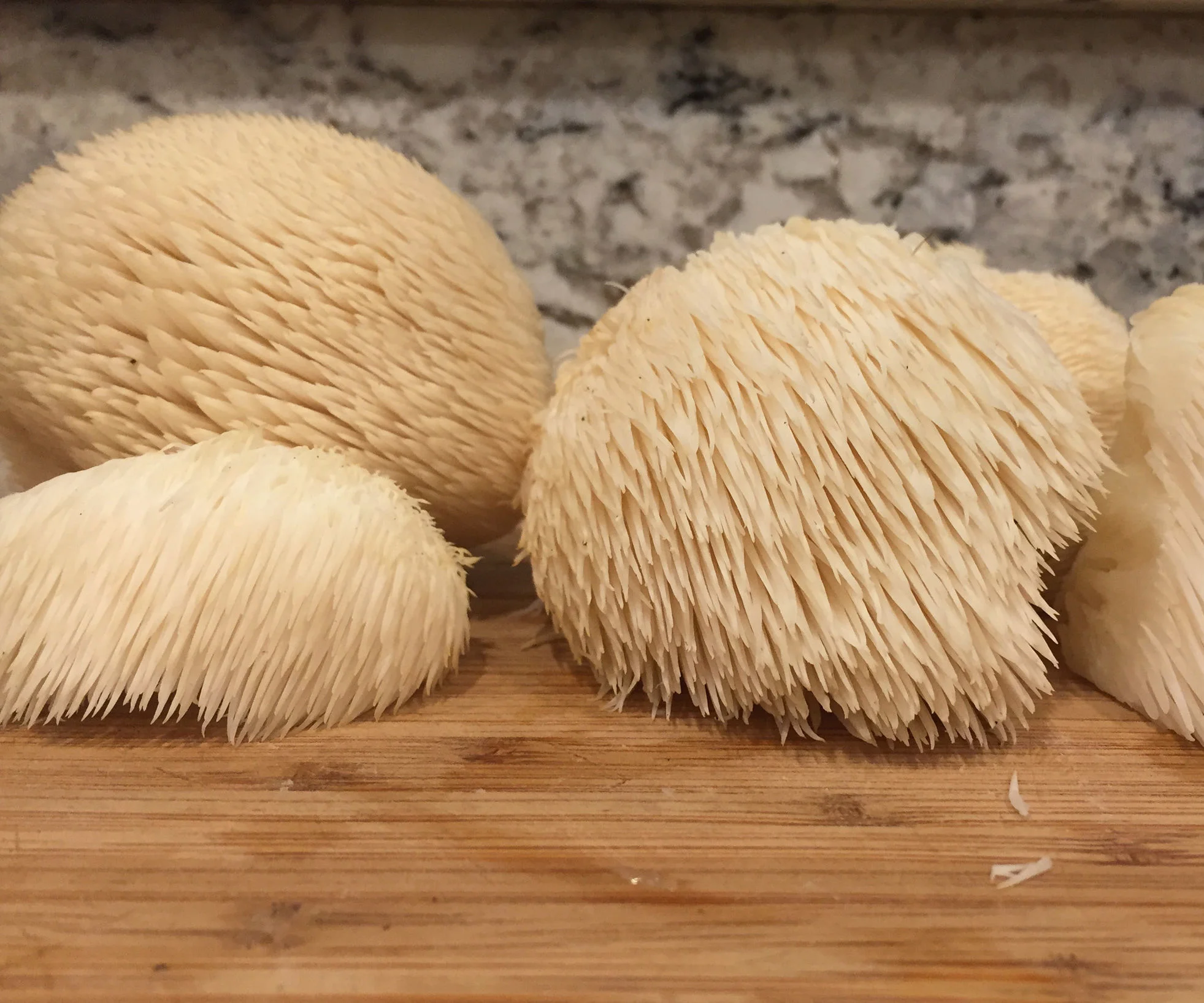
03 Dec THE MANY MEDICAL BENEFITS OF LION’S MANE
Lion’s Mane mushrooms are quickly gaining popularity worldwide as a potent medicinal. Lion’s mane shows immense promise, from boosting your memory to supercharging your health to slowing down age-related neurodegenerative diseases. The aptly named Lion’s Man is a dense, round mushroom covered entirely in slender, shaggy white spines. It looks like a big white pom-pom covered with white icicles or the mane of a lion. This mushroom grows wild in Europe, Asia, and the United States and is cultivated worldwide.
It is a culinary mushroom and medicinal, with a robust flavor similar to seafood. Lion’s mane “crab cakes” are delicious! The mushroom is also prepared into a concentrated tincture, tea, and powders. It is high in many bioactive compounds, including iron, zinc, calcium, potassium, magnesium, phosphorus, copper, manganese, and selenium.
Lions’ Mane Health Benefits
In Eastern medicinal practices, Lion’s mane has been used for centuries to boost brain function and physical health. Recent scientific studies show what traditional doctors knew all along. Lion’s mane is good for the mind and body!
Brain Health – Memory & Cognition
A natural compound in the body, the nerve growth factor (NGF), is essential to human neural health as it maintains, creates more of, and maintains nerve cells. For our brains to operate normally, we need NGF production. A recent study demonstrated that Lion’s Mane might stimulate the growth of NGF; the natural chemicals in Lion’s mane prompts NGF production.
To test Lion’s mane’s efficacy in helping memory, a double-blind study was done with patients 50-80. They all suffered from mild cognitive impairment and either took a Lion’s Mane supplement or a placebo for 16 weeks. The study demonstrated that a daily Lion’s Mane supplement improved cognitive function. After the patients stopped taking the Lion’s Mane supplements, their cognitive functions decreased again.
Neurodegenerative Diseases
Lion’s mane may hold the key to treating some of the biggest neurodegenerative diseases of our time, specifically Alzheimer’s and dementia. It contains a unique compound called erinaceus, which is shown to delay nerve cell death. This compound is also being investigated to see if it can regenerate nerves, as well.
A two-month-long study with mice demonstrated that their general memory, recognition memory, and overall well-being all improved when taking oral Lion’s Mane supplements. A further study showed mice had improved motor function when administered Lion’s mane.
Another study with mice revealed that a daily dose of Lion’s Mane prevented short-term memory loss and visual recognition memory loss due to amyloid beta build-up. Amyloid beta is a primary component in plaques found on the brains of people who have Alzheimer’s disease. This study also showed fewer plaque deposits on the cerebral cortex and hippocampus.Immune System NGF (nerve growth factor) also plays a critical role in our immune health. It is actively involved in regulating the immune system for optimal functioning. Since Lion’s Mane may stimulate NGF, it also means it invigorates the immune system.
Recent studies with mice show that regular consumption of Lion’s Mane demonstrates great potential in fighting pathogens, specifically those transmitted via mouth or nose. It also improves intestinal health, which is thought to be directly related to the immune system.
Anxiety and Depression
The memory-enhancing properties of Lion’s Mane directly correlate with its effectiveness in treating anxiety and depression. Weak recognition memory is explicitly tied to depression because the brain struggles to cope with new, novel, and unfamiliar objects.
Additionally, the anti-inflammatory properties of Lion’s Mane may reduce mood disorders, as recent studies demonstrate a link between brain inflammation and overall mental health.
Lion’s mane may be particularly helpful for women going through menopause. A study done with menopausal women showed reduced anxiety, depression, irritation, and improved concentration over four weeks.
Cancer Protection
Several preliminary studies show promise for Lion’s Mane protecting against cancer growth. One study studied the properties of Lion’s mane and discovered many bioactive compounds that could assist in defeating leukemia. Another study showed a lion’s mane extract helped limit the spread of colon cancer cells and reduce the size of colon tumors in mice.
Whether you want to harness the brain-enhancing abilities of Lion’s Mane to supercharge your life or use it to improve your overall well-being, it’s easy to incorporate this superfood mushroom into your daily regimen. To best support your goals, maintain consistency, and you’ll reap all the many benefits of Lion’s mane.
Resources:
Spelman, Kevin & Sutherland, Elizabeth & Bagade, Aravind. (2017). Neurological Activity of Lion’s Mane ( Hericium erinaceus ). Journal of Restorative Medicine. 6. 19-26. 10.14200/jrm.2017.6.0108.
Brandalise F, Cesaroni V, Gregori A, et al. Dietary Supplementation of Hericium erinaceus Increases Mossy Fiber-CA3 Hippocampal Neurotransmission and Recognition Memory in Wild-Type Mice. Evid Based Complement Alternat Med. 2017;2017:3864340. doi:10.1155/2017/3864340
Li IC, Lee LY, Tzeng TT, et al. Neurohealth Properties of Hericium erinaceus Mycelia Enriched with Erinacines. Behav Neurol. 2018;2018:5802634. Published 2018 May 21. doi:10.1155/2018/5802634
Nagano M, Shimizu K, Kondo R, Hayashi C, Sato D, Kitagawa K, Ohnuki K.
Reduction of depression and anxiety by 4 weeks Hericium erinaceus intake. Biomed
Res. 2010 Aug;31(4):231-7. PubMed PMID: 20834180.



